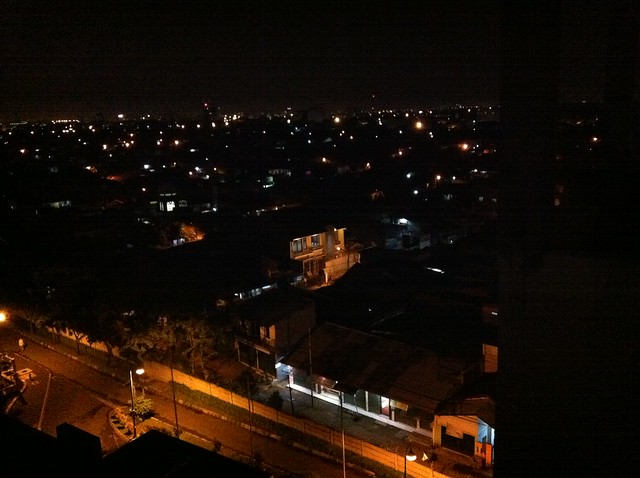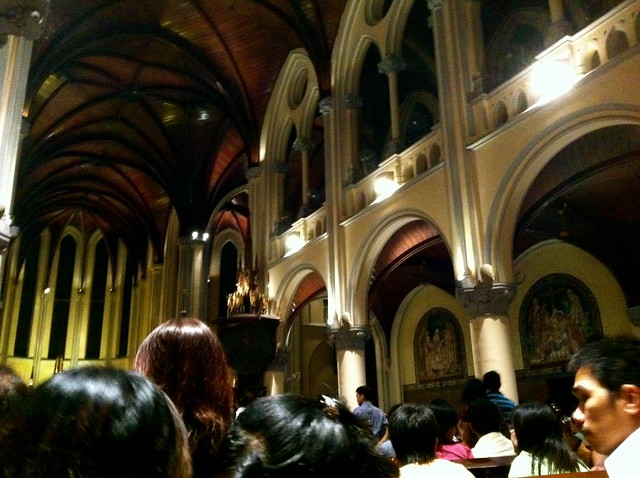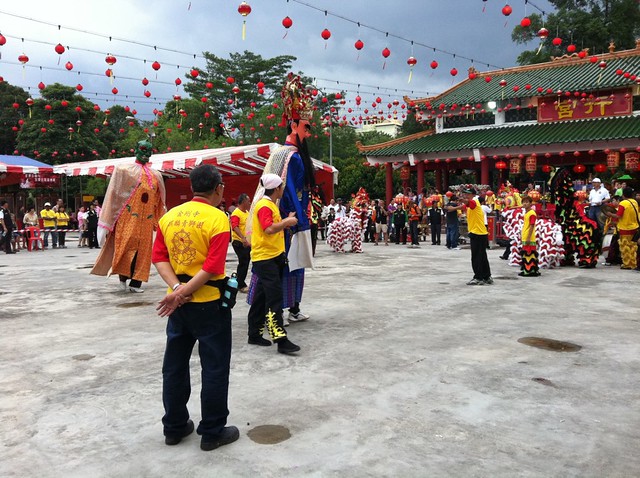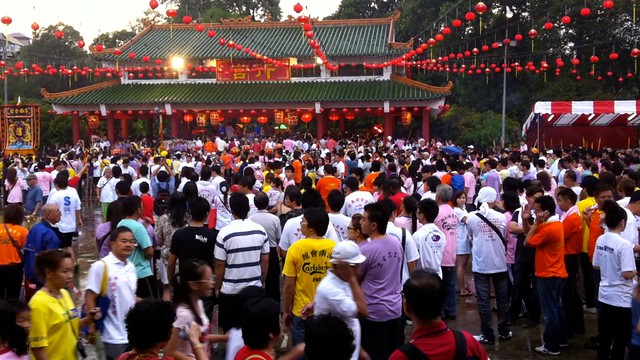
Taman Rasuna - Allah Akbar
(Jakarta, December 2010)
One thing that one often forgets about visiting a staunchly Muslim country - that is, until one arrives - is that startling, huge sound of muezzins at prayer time, echoing at least five times a day through the city. Like a beacon of light sweeping through the city, the voices rise from the many minarets across the city, calling muslims to prayer. There was always one at about half past 3 in the morning, and due to the stillness of the night it was always incredibly clear as the sonorous sounds echoed off the skyscrapers in the adjacent and more affluent parts of Jakarta city. I did not see so many mosques in the rich part of town, but I did see them at almost every other street corner in the poorer, low-rise areas.
Who was keeping awake at 3 in the morning? Who was listening and who was still praying at this hour? It was as if the voices from the poorer quarters of Jakarta competed with one another to be heard, and under the blanket of darkness, I did not know who might still be listening.

Gereja Katedral Jakarta - Gloria In Excelsis Deo (Bahasa version)
(Jakarta, December 2010)
On the night of Christmas Eve, thousands of Christians pack the Gereja Katedral Jakarta to attend the Mass services conducted in Bahasa. One of Jakarta's largest Catholic cathedrals, the halls within the Gereja Katedral Jakarta are opulently grand in European style - tall stained-glass windows, wooden pews decked with holly and ribbon, small roman birdbaths of "holy water", and gilded paintings of Jesus and the Apostles on the walls. Dressed in their Sunday's best, the services draw a cross-section of Jakarta which appears predominantly Chinese and generally very bourgeois or affluent.
The refrain of "Angels we have heard on high" will be familiar to even english speakers. As the faithful crowds sung it, I wondered, did they translate this song from the English, or the Dutch, or was there a Latin version of the song? There was something jarring about this. The only words I recognised were the Latin words, and in that, one is reminded that Latin was not even the original language of the Bible. I could not even begin to imagine how the Indonesians would relate the Bible to their context of living in Indonesia. An artificial bubble world. But of course I am simply thinking too much - it is not so complicated for most, for Christianity is often just another sign of the gentrification or western influences in those parts.


Xing Gong Temple (Jalan Ulu Air Molek) - Heng Ah Huat Ah
(Johor Bahru, February 2011)
On the 20th day of every new Lunar year, an epic Chingay procession is held in Johor Bahru, where five deities (representing each of the Chinese dialect groups which have settled in Johore - Hokkien, Cantonese, Hainanese, Hokchew, Hakka) take a tour around the city, hoisted on the back of followers eager to bear the load of the huge shrines (for good luck!).
At the temple before they go on their tour of the town, event organisers from the temple lead the crowds in vigorous cheers of "Huat Ah! Heng Ah!" The event is clearly more than just religious ritual but also symbolic of the Chinese community's aspirations and power within Malaysia. After respects have been paid and dances have been made in honour, the "gods" are paraded proudly through an 8km stretch traversing the financial centre of the city which they presumably watch over. The ensuing float procession is decorated in bright LEDs, neon lights, accompanied by acrobatic performers, worshippers with huge joss sticks, offerings, and a long entourage of lion and dragon troupes from all over Malaysia and other parts of Asia.

No comments:
Post a Comment